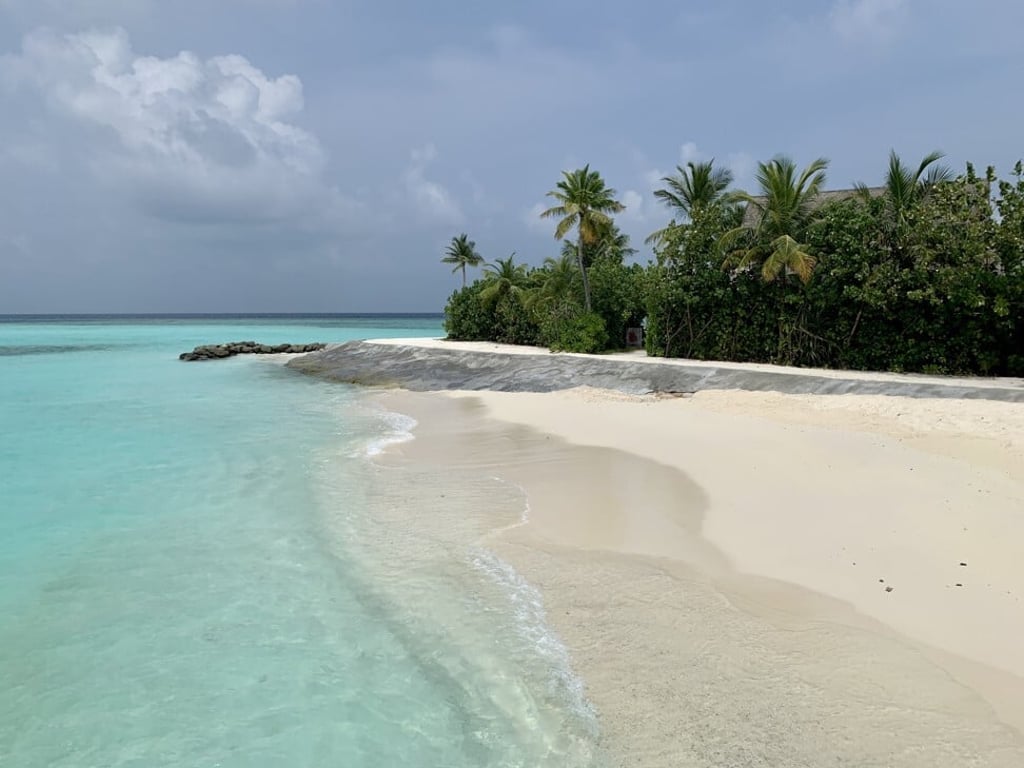Mask-free in the Maldives: what it’s like now in the tourist idyll – as beautiful as ever, and coronavirus-free
- In one of the first destinations to reopen, our correspondent finds the resort experience as enchanting as ever, and dispenses with a mask on deserted beaches
- Covid-19 restrictions in the Maldives do nothing to lessen a unique experience, but having to quarantine afterwards in Hong Kong is daunting

From my overwater villa I’m staring into the Studio 54 of the fish world; jade and purple parrotfish pass by in flocks, tubular blue needlefish dart and dodge, black-tip reef sharks sashay about like they own the place. Inky eagle rays and huge stingrays, like magic carpets, steal the show – until the dolphins make an appearance and upstage them all.
My new aquatic friends are oblivious to the carnage 2020 has wrought upon the world and for a few, all too brief days, I’ve been able to share their carefree world.
When I booked my flights, the Maldives was looking like one of the few viable holiday destinations Hongkongers could visit; naturally socially distanced across 1,200 islands, with visa- and quarantine-free entry and a low Covid-19 caseload (the country of half a million citizens has recorded just 12,112 cases and 41 deaths).
Anti-coronavirus measures introduced by the Maldivian government in August require every visitor to present a negative Covid-19 test on arrival, taken within 96 hours of flight departure, which catches most imported cases. There would still be a 14-day quarantine required on my return to Hong Kong but I could do that in my new apartment, which I was looking forward to decorating.

I figured that as long as I could enjoy a holiday of a similar length to quarantine, then the hassle would be worth it.